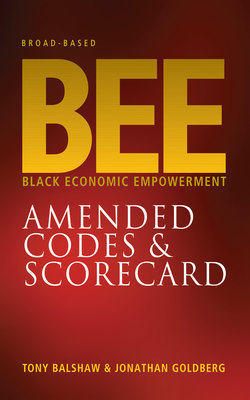Читать книгу Broad-Based BEE - Jonathan Goldberg - Страница 35
На сайте Литреса книга снята с продажи.
EMOTIONAL INTELLIGENCE IN LEADERSHIP
ОглавлениеEmotional intelligence has been described as the ability to sense, understand and effectively apply the power and acumen of emotions as a source of human energy, information, connection and influence. It provides a deeper, more fully informed understanding of oneself (human emotions – feelings, sensations and gut-level instincts) and, importantly, those around us.
Emotional intelligence is important for transforming businesses, particularly for the people who lead them. We cannot disconnect emotions from intellect; in fact, emotional intelligence enhances intellectual prowess. The emerging models of business intelligence, particularly in relation to broad-based BEE implementation, are based more on emotional intelligence as the primary source of human energy, information and influence.
The core elements of emotional intelligence in highly effective leaders, according to Dulewicz and Higgs, are the following:
Self-awareness: The awareness of your own feelings and the ability to recognise and manage these.
Emotional resilience: The ability to perform well and consistently in a range of situations and under pressure.
Motivation: The drive and energy you have to achieve results, balance short- and long-term goals, and pursue your goals in the face of challenge and rejection.
Interpersonal sensitivity: The ability to be aware of the needs and feelings of others and to use this awareness effectively in interacting with them and arriving at decisions impacting on hem.
Influence: The ability to use insight and interaction to arrive at and implement decisions when faced with ambiguous or incomplete information.
Conscientiousness and integrity: The ability to display commitment to a course of action in the face of challenge in order to act consistently and in line with understood ethical requirements.
“People want more from their leaders. More integrity. More emotional openness. More innovative responses to the thorny problems of the day.” – Harvard Business Review, July 2002
